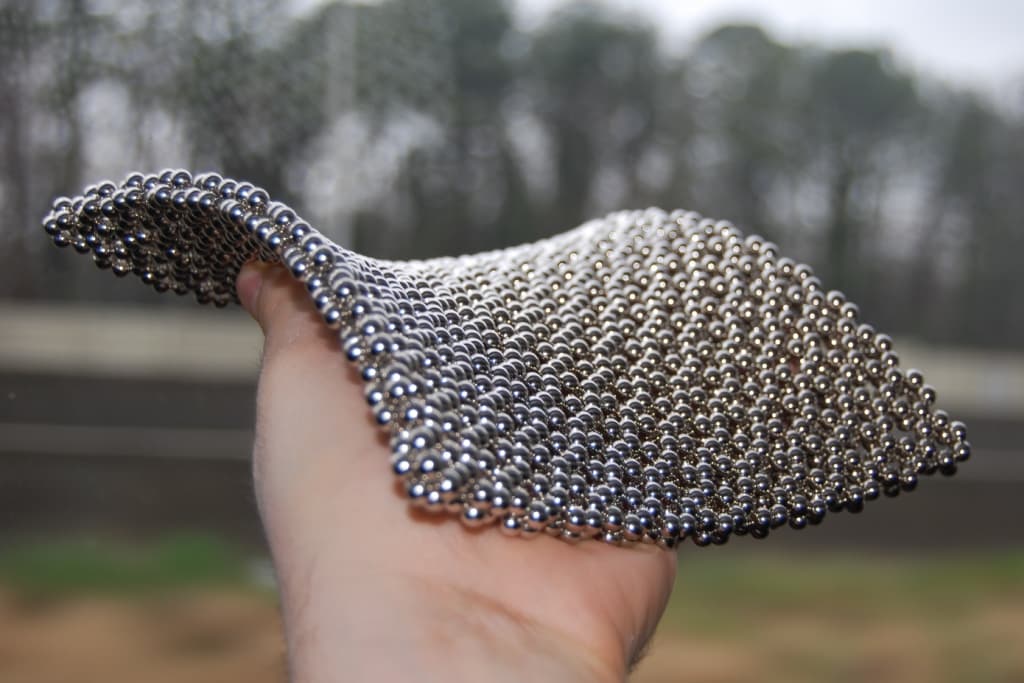
Denver-based Zen Magnets, now known for selling rare earth magnets after a federal recall and fighting (successfully) to defend its product, was issued a $5.5 million civil penalty by a federal judge Wednesday in a separate legal proceeding.
Due to the company’s limited financial resources, the penalty has been all but waived, but the company still owes $10,000.
The order comes only days after the district court overturned the U.S. Consumer Product Safety Commission's 2014 ban of rare earth magnets. Zen Magnets released a statement on Tuesday to celebrate the victory.
"Today we are excited to once again take orders of Zen Magnets for immediate production," the statement reads. "We are so grateful for the community support and encouragement we’ve received that makes our stand possible."
In that statement, they also paid notice to what they named, "Battle 3," or the commission's 2015 suit against them for continuing to sell recalled magnets from a competitor who had settled -- which Zen Magnets ultimately lost.
Legal trouble for the company owned by University of Colorado graduate, Shihan Qu, began four years ago.
The U.S. Consumer Product Safety Commission sent letters to 13 U.S. companies selling earth magnets, or the powerful 5-millimeter magnets sold in sets for sculpting. The letters requested cessation of sales on those magnets due to the threat they posed to children.
In a 2012 statement, the CPSC reported that in cases when two or more magnets are swallowed, magnets can attract within the gastrointestinal tract, causing serious injury. The CPSC estimated that between 2009 and 2012, there were 610 cases per year of children ingesting two or more magnets and sustaining injuring thereafter. Some of those incidences resulted in hospitalization, and one 2013 case resulted in death.
Zen Magnets was one of three companies to resist orders to stop selling the magnets -- Qu claimed the danger was overinflated and did not pertain specifically to his product. New York-based Maxfield & Oberton, the makers of BuckyBalls backed down, after the CPSC sued in 2012.
But Qu told the Denver Post in 2012 that the magnets had proper safety warnings and was unaware of any injuries resulting from the 57,000 sets of magnets the company had at that time sold. He later would use that argument in court.
“I feel like there are people at the CPSC who just want some heads on a mantle,” Qu told the Post. “If they ban magnets, it’s the start of a slippery slope of absolving parents of their responsibility to heed warnings.”
In fact, the Nov. 22 ruling overturning CSPC's ban said the CPSC "cloaks its findings in ambiguity and imprecision." It effectively called into question the CPSC's assessment of the amount and severity of injuries sustained from rare earth magnets, and of the utility of the sets and their ruling's effect on availability.
Qu's David C. Japha told the Denver Post the decision represents a victory for Zen Magnets and all small businesses, especially since, to his knowledge, a circuit court hasn’t overturned a CPSC ruling since 1983.
Although Zen Magnets won the war, they did lose a $10,000 battle.
The now overturned CPSC ban on magnet sets went into effect in 2014. And when Zen Magnets continued to magnets they had purchased from competitor Magnicube, which were recalled, the CPSC filed a different suit, which Zen Magnets ultimately lost.
“Selling potentially dangerous products that another company had recalled put consumers at risk,” Principal Deputy Assistant Attorney General Benjamin C. Mizer, head of the Justice Department’s Civil Division said in a statement. “The civil penalty imposed by the district court indicates that violations like this will not be taken lightly."
Zen Magnets has until March 15, 2017, to pay the $10,000 penalty.
Multimedia business & healthcare reporter Chloe Aiello can be reached via email at [email protected] or twitter.com/chlobo_ilo.
Subscribe to Denverite’s newsletter here.













